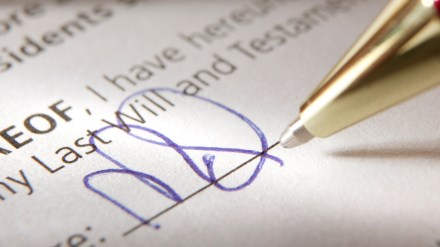Q: An elderly man in our congregation passed away recently. Our church was surprised to learn from the local probate court that he had left most of his estate to the church. He was a widower, with no children. Some of our church board members are concerned that his collateral relatives will challenge the validity of the will on the ground of undue influence. What exactly is undue influence? Can this gift be nullified on this basis?
What Is Undue Influence?
If the recipient of a gift “unduly influenced” the donor into making the gift, the donor (or a legal heir) may have the gift canceled. This rule applies to direct gifts made during one’s lifetime and to gifts contained in documents (such as wills) that take effect after the donor’s death.
Key Points About Undue Influence
1. It Goes Beyond Persuasion or Suggestion
Undue influence connotes total dominion and control over the mind of another. As one court noted, “undue influence is that influence which, by force, coercion or over-persuasion destroys the free agency” of another.
2. Circumstantial Evidence Is Key
Undue influence is generally inferred from the circumstances surrounding a gift. Common factors courts consider include:
- Whether the gift was the product of hasty action
- Whether the gift was concealed from others
- Whether the recipient actively secured the gift
- Whether the gift was consistent with the donor’s prior plans
- The donor’s age, physical condition, and mental health
- Whether a confidential relationship existed between the donor and the recipient
- Whether the donor had independent legal advice
For additional insights and case studies, refer to the Legal Library.
3. Burden of Proof
Most courts require undue influence to be proven by “clear and convincing” evidence. However, some courts may presume undue influence in specific scenarios, such as:
- A church member making a direct gift to their minister
- An attorney drafting a will for a church member who belongs to the same congregation
This presumption is rebuttable but can complicate matters.
4. Timely Action Is Crucial
Relatives or others challenging a gift must act quickly. Unreasonable delays can bar any recovery.
5. Churches’ Moral Obligations
Church leaders have a moral obligation to implement the estate plans of deceased members if they believe no undue influence occurred. Succumbing too quickly to threats from disgruntled relatives could violate this trust.
How to Encourage Estate Gifts
Encouraging estate giving can provide significant support for your church’s mission. For best practices and guidance, consult resources on effective estate planning.





